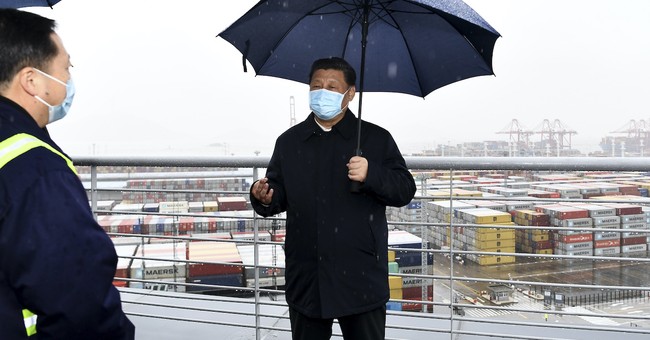The Mask Has Slipped

Article by Jason Killmeyer in "Townhall":
Underneath the furor and debate over the U.S. administration's attempts to describe the coronavirus by its place of origin, a lesson remained obscured. Our understanding of the episode may be that affixing the label was a deliberate rhetorical escalation against a rival, an attempt to hold China accountable, or simply the stoking of anti-foreign sentiment to bolster domestic poll numbers. However, what those arguments missed – and what even the intervening more serious commentary on China’s role in the world since then missed – is the era we have now entered.
In an age where we are now told to dawn masks, one important mask has slipped. Gone are the days of the press pieces discussing Chinese leadership’s technocratic excellence as they invest in this or that green technology, or op-eds about Xi’s foresight as we (almost jealously) mention their 25 or even 50-year planning horizons. China is moving from an authoritarian to a near-totalitarian regime maintained by social credit and a king for life – and their propaganda efforts now have the bluntness of the latter regime type. Put more simply, the COVID-19 lies they told are akin to old school Soviet-size lies, and we’ve been slow to understand what that means about the regime spouting them and the world in which they are apart.
China speeds recklessly, no longer pretending the rules of the international order are for it. We use wholly insufficient verbs like harass or bully to describe the direct violation of maritime boundaries and rights in the Natunas via armed escort-led incursions of commercial plunder.
Risks are high not only because of international tensions over China’s deadly COVID-19 coverup but also because mischievous actors naturally seek gains when they think global attention is turned elsewhere and inward-facing populaces are avoiding necessary hard thinking about currently unsustainable international trends. The latter is the greater risk for this reason: China rejects major elements of the international order, and the global community has lacked the will to confront that reality. It still does.
To meet that risk, and not be made further vulnerable by it, two tasks are required of Western leadership (Japan included). The first is to fully comprehend the internal shift that has happened in China, the regime-transformation Xi has accomplished. The second is to surveil the wide range of violations of international law that China has either directly undertaken or signaled at and to get on the same page, and quickly, on what lines we are willing to defend and not. Then and only then can we truly support our broader coalition of Asian allies in the way that they deserve, but more importantly, can plan to. We often hear from leaders at one summit or another conference that they are united, that Chinese aggression is leading a pushback globally. And yet, China creates new facts on the ground – very literally in the sense of the Spratly’s – and the world is slow to respond absent driving by them at less than regular intervals.
Today’s crop of world leaders, brought to power in an era of populism and reflective of an inward-facing public sentiment, have a tough sell ahead. But it is worth trying. If we fail to create clarity – big, and consensus-backed red lines – if we don’t embrace both cost and risk now even as the truly devastating scale of the COVID-19 economic impact is beginning to dawn on us, the 1920s will be remembered as the decade that big chess pieces start to move, and the phrase roaring twenties will take on a much more sinister connotation.
https://townhall.com/columnists/jasonkillmeyer/2020/04/27/the-mask-has-slipped-n2567632




Post a Comment